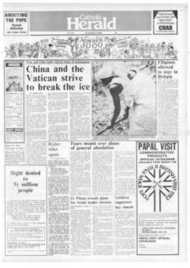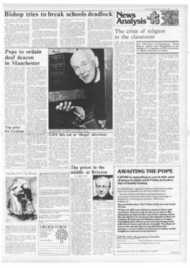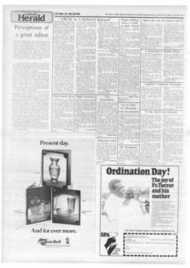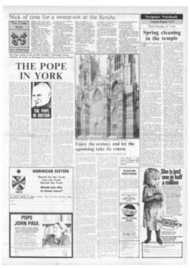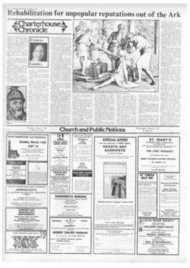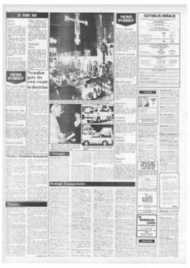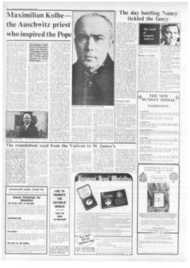Page 6, 12th March 1982
Page 6
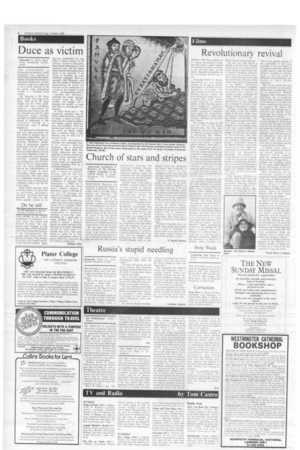
Report an error
Noticed an error on this page?If you've noticed an error in this article please click here to report it.
Tags
Share
Related articles
Positive Role Of Laymen Stressed
The Women In Me Resbytery
The Layman's Viewpoint By Donald Mcchesney
What Is A Layman ?
Lay Apostles And Catholic Action
The Housekeeper, Apollo Theatre
WE SHOULD be gratified, rather than scandalised, when the press devotes space to a priest in an unsavoury situation. It is usually because that situation itself applies to a layman no longer warrants attention. It shows that priests are still thought of as having standards higher than others in society. Whatever the reason, in such circumstances nuns feature less frequently in the columns of newspapers but prove a strong attraction to the authors of novels or to playwrights.
Perhaps Frank D. Gilroy believes that the average theatregoer does not think of a nun as belonging to the female sex and , that therefore the sexual passions of an ex-nun will cause even more shock that he might have achieved had the character been a woman who did not know the existence of a veil.
Since Mr Gilroy's play, The Housekeeper, at the Apollo Theatre, has not the slightest hint of subtlety about it I doubt that it benefits in any way from having one of the three characters an exnun. To be frank, despite Leo McKern's performance and Tom Conti's direction I doubt if anything would make it palatable to most theatre patrons.
J.K.
The Forest by Alexander Ostrovsky, RSC at the Aldwych
THE RSC's studio production of The Forest by Alexander Ostrovsky proved so successful at Stratford that it has transferred to accommodate larger audiences at the Aldwych Theatre.. Has the company bravely unearthed another gem by an obscure playwright? Not quite. Alexander Ostrovsky, I was amazed to find, is the most popular and widely produced author in Russia, and The Forest is possibly his finest
work — not too much of a risk!
This complex and hilarious play shows a travelling player, empty-pocketed, visiting home after fifteen years' absence. Home, however, is a country estate, and actors, particularly poor ones, scandalised the Tsarist gentry, so the actor pretends that he has instead spend fifteen distinguished years fighting in Poland and disguises a fellow actor as his batman. Home is ruled by his aunt a parsimonious harridan whose sole extravagance is her infatuation with her ward, a callow youth, whom she is marrying off to her neice to keep up appearances. Home is also haunted by obsequious neighbours, crooked businessmen and servants who spy. In short, the players have strolled into a web of deceit and hypocrisy further from reality than the stage they have left. Certainly by his very rejection of materialism the actor seems ennobled saving the suicidal niece from drowning and paying her dowry with his last rouble. He wanders off in the freedom of poverty leaving his aunt with one hand round her new husband and an even tighter grip on her cash box.
Adrian Noble's intelligent production permits a variety of acting styles. Janine Duvitski. plays the love-lorn niece with passionate realism, while as the Aunt, Barbara Leigh-Hunt seems to communicate openly with the audience. In her love scenes, she and Paul Whitworth achieve a sophisticated and hilarious grotesquerie. Alan Howard recaptures the theatrics of the ham actor with amazing precision, and his final moment of sincerity. forcing the gentry to see their snobbery, just manages to convince.
This is a wonderful entertainment, and hopefully this production will not slip from the repertoire when the RSC move to their new premises at the Barbican.
blog comments powered by Disqus


